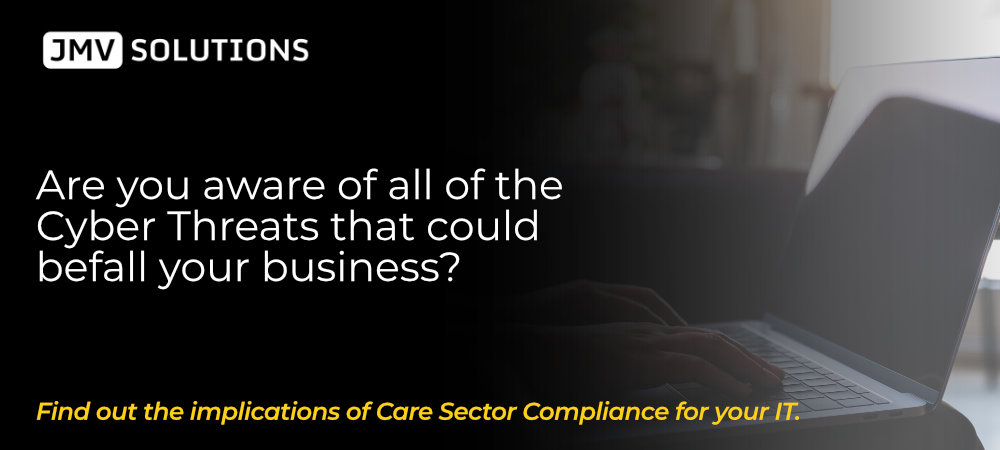In today’s world, cyber attacks are the number one threat to organisations everywhere. Rather than someone smashing down your office door in the middle of the night, you are now more likely to be assaulted silently online. You may believe your firm is too small to be worth targeting, but that is not the case. There are many different types of cyber threats, and criminals do not discriminate in the organisations they target.
Online dangers range from spear phishing and brute force attacks to infrastructure infiltrations and attempted breaches that result in company-wide data breaches.
What are Cyber Threats?
A malicious act that is planned with the intention of stealing data, inflicting data destruction, or just to cause disruption and damage is referred to as a “cyber security threat.”
Current Cyber Threats
The phrase is now almost usually used in relation to security issues involving your IT ecosystem. A cyber attack is a planned attack on your network with the goal of causing damage. Some attacks only cause inconvenience for your network’s capabilities, but others have the ability to have a significant negative impact on your business.
Cyberattacks have the potential to seriously harm your company, leaving you with no way to continue running it due to equipment problems, mechanical failure, and energy outages, among other things. They can specifically harm industries like the medical field, where data is copious and sensitive to a great extent. Saying that a sophisticated enough cyber threat could alter how we live is not overstating the case.
Even while we are getting better at safeguarding ourselves online, cybercriminals are also making progress at the same time.
The subsequent sections in the series examine some of the most typical cyberattack kinds as well as some of the various origins of cybercrime.
The Source of Cyber Threats
Cyber threats originate from a range of persons, from a variety of locations, and with a variety of different settings. Numerous criminal enterprises with personnel dedicated to wreaking havoc and carrying out attacks are run like corporations.
Some are as follows:
- Nation-states
- Terrorists
- Industrial spies
- Organized crime groups
- Unhappy insiders
- Hackers
- Business competitors
Whole countries deploy so-called “cyber weapons” to wreak havoc on hostile territory, cut off the power during hostilities, spread false information on recognised media channels, and engage in a variety of other illegal crimes.
Of course, a cyber threat of this magnitude won’t have an impact on your company, but those that are purchased and sold on the Dark Web might. Aspiring hackers utilise the Dark Web, a marketplace for online crime, to purchase various varieties of ransomware, malware, and other tools that support online attacks.
Let’s now look at some of the most typical cyber attacks that could be used to target your company as well as some of the newest threats that are appearing in the constantly changing tech world.
Attacks on 5G Devices
5G has been an exciting new development for a while now and it is finally being put into place and is beginning to deliver customers the lighting fast internet speeds they were hoping for. However, as it is in a slightly developmental stage you can expect it to be a target for cyber threat actors.
The 5G gear used by routers, mobile devices, and PCs is being targeted by hackers. It’s inevitable for new technologies like these to have some coding flaws. The very thing that hackers want to take advantage of is this.
A way you can prepare for this is by being aware of the firmware security in devices you buy, especially those with 5G ability. Some manufacturers will design their products with stronger firmware security than others. When buying new gadgets, be sure to inquire about this.
One-time Password (OTP) Bypass
This new threat is designed to get past one of the best newer forms of security. Muti – factor authentication (MFA) is very effective at preventing sign-in attempts from unsavoury online users.
Here are some of the methods hackers are using to try and bypass MFA:
- Reusing a token: Getting access to a recent token and trying to reuse it
- Sharing unused tokens: The hacker uses their own account to get an OTP. Then attempts to use that OTP on a different account.
- Leaked token: Using an OTP token leaked through a web application.
- Password reset function: A hacker uses phishing to fool the user into resetting a password. They then trick them into handing over their OTP via text or email.
Attacks Surrounding World Events
During the COVID-19 pandemic and other such prevalent world issues cyber attacks are rife. Hackers launch phishing campaigns for global events Everything is attacked, from the most recent hurricane or typhoon to the conflict in Ukraine. People who are unwary frequently fall for these tricks. This is because the crisis frequently diverts their attention. These attacks can be particularly potent as hackers will often try to socially engineer you with tragic photos to overload you with emotions sometimes clouding you vision so you cannot see that it’s a scam.
Smishing & Mobile Device Attacks
Mobile devices are extremely common nowadays. And every year SMS-based phishing (smishing) attacks become more and more common. Many consumers don’t anticipate getting bogus texts sent to their mobile phones. However, the secrecy around cell numbers has diminished over time. Online vendors sell lists of them to hackers. Then they create plausible phoney SMS that appear to be shipment notifications or receipts. An account or data breach only requires one wrong click. Malware is also becoming more and more common on mobile devices so it’s important to ensure that you have good mobile anti-malware. As well as other protections on your devices, such as a DNS filter.
Elevated Phishing Using AI & Machine Learning
Phishing emails are do not stand out as much as they used to, they now look more and more like real emails from real companies and often come personalised. So, you have to be so careful nowadays with any email that seems slightly off.
Why choose JMV Solutions?
Since 2012, JMV Solutions has provided IT support for a wide range of small and medium sized businesses throughout Exeter, Devon and Cornwall. Our company is formed of a personable, friendly and expert team of IT and Security experts that have your best interests at heart. We protect your business, your valuable data, and help sustain your compliance requirements against a rapidly growing cyber threat. Contact us today to learn more.


